Have Emacs teach you Chinese
or English or Math or whatever
automatically using org-drill and org-capture
Josh Moller-Mara
jmm@cns.nyu.eduThis presentation: jmm.io/emacs1
How?
- Using the spaced repetition package
org‑drill - Don't waste time studying cards you already know
- Automatically creating flashcards using
org‑capturetemplates - Don't waste time making new cards
Spaced repetition?
- If you've ever used flashcards, the idea of spaced repetition may be somewhat familiar to you.
- If you're good at a particular flashcard, you don't need to review it as frequently.
- If you're not so good, you may need to review a card more frequently.
How it works
- You get a flashcard
- You think about what the answer to the flashcard is
- You flip over the flashcard
- Depending on how well you answered it, you categorize it from 0 to 5.
- Totally forgot
- Took a while to remember
- You remembered after seeing it
- It took a while, but you remembered
- You remembered after a little thought
- You remembered the item easily
"Hello in Chinese"
你好
nǐ hǎo
nǐ hǎo
There's a bunch of Spaced Repetition Software
One of the most popular spaced repetition software is Anki.
Fun historical fact is that it used to be an Emacs package called "flashcard.el"
But the one we'll be talking about today is
org-drill
Enter org-drill
org-drill.el does flashcards and spaced-repetition, all within org‑mode
It comes with Org mode in the contrib directory!
(Or install
(Or install
org-plus-contrib)My Org-drill configuration
(add-to-list 'load-path "~/elisp/org-mode/contrib/lisp/")
(use-package org-drill
:config (progn
(add-to-list 'org-modules 'org-drill)
(setq org-drill-add-random-noise-to-intervals-p t)
(setq org-drill-hint-separator "||")
(setq org-drill-left-cloze-delimiter "<[")
(setq org-drill-right-cloze-delimiter "]>")
(setq org-drill-learn-fraction 0.25)))
Important thing here is to add it to
org-modulesHow to use org-drill
Add a "drill" tag in org-mode to whatever you want drilled.Use clozes or subheadings to determine what's on the "back of the flashcard".
Use one of the following
org-drill commands:
org-drill- Drills the current bufferorg-drill-tree- Drills the current org-mode headingorg-drill-directory- Drills all files in the current directory
org-drill makes organizing your flashcards easy
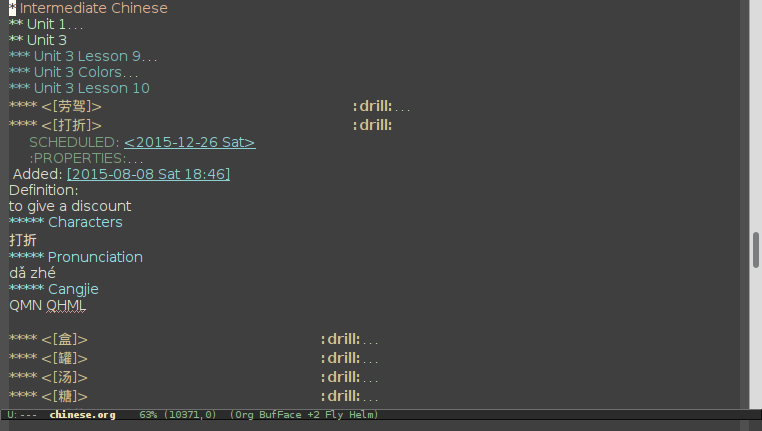
You can organize things hierarchically and by file.
org-drill has support for:Images
$\LaTeX$
Clozes
Two-sided cards
User-defined style cards using Elisp
(e.g. card types for conjugation of verbs)
$\LaTeX$
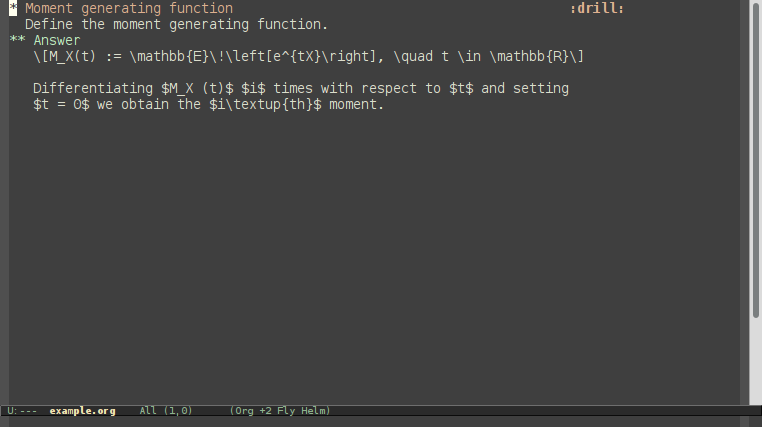
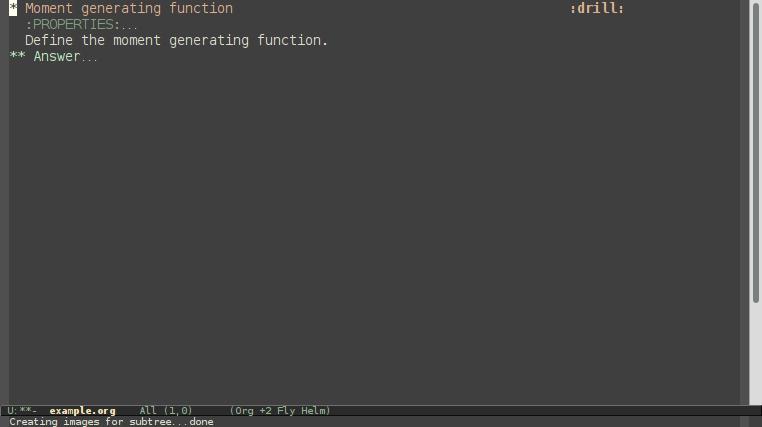
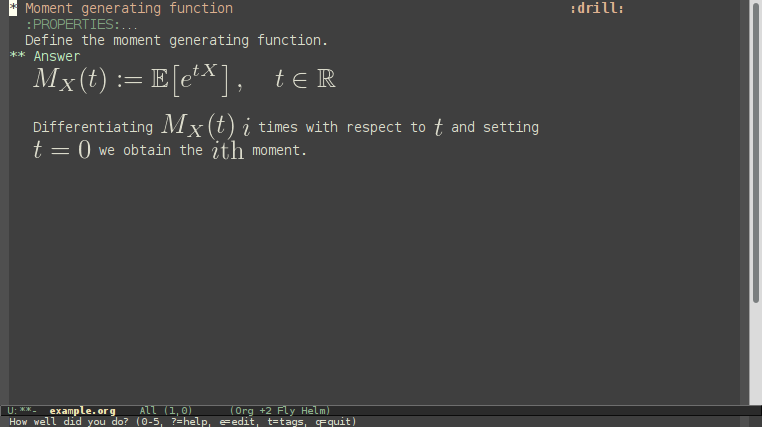
org-drill
Clozes
Clozes are basically "fill in the blank" parts of flash cards.
They're easily added, by default using brackets like [this]
You can also have hints to be displayed.
(e.g. There are [number66|number] ferromagnetic elements)
(e.g. There are [number66|number] ferromagnetic elements)
(Note: I change the delimiters I use.
You can set
You can set
org‑drill‑left‑cloze‑delimiter, org‑drill‑right‑cloze‑delimiter, org‑drill‑hint‑separator)Cloze examples
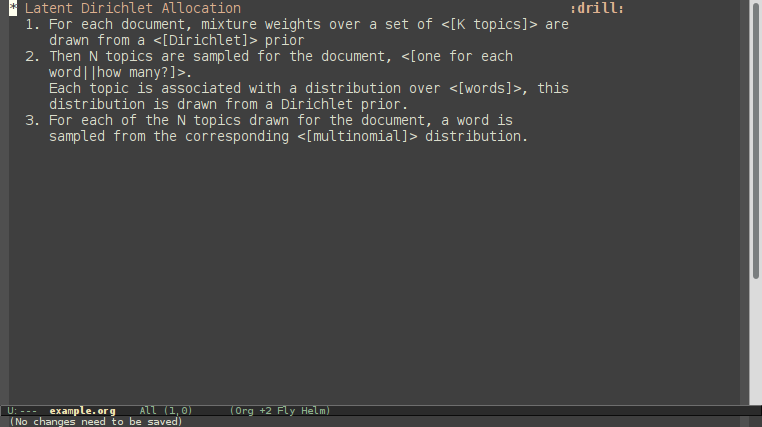
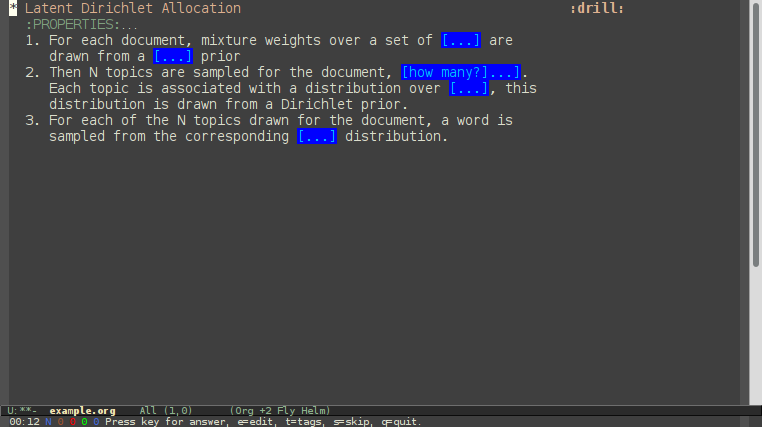
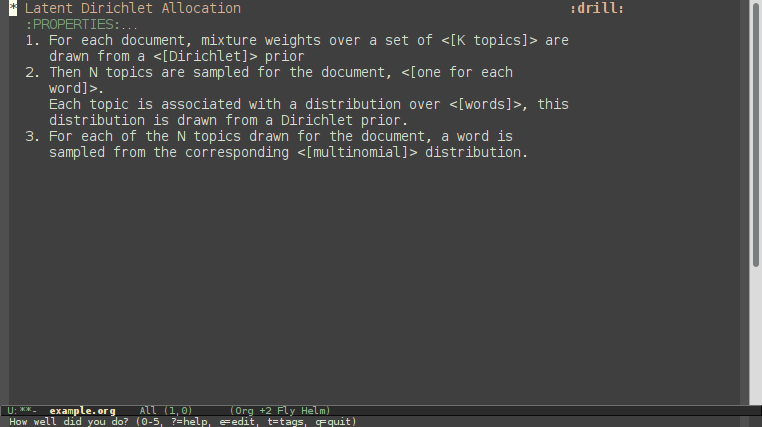
Two-sided cards
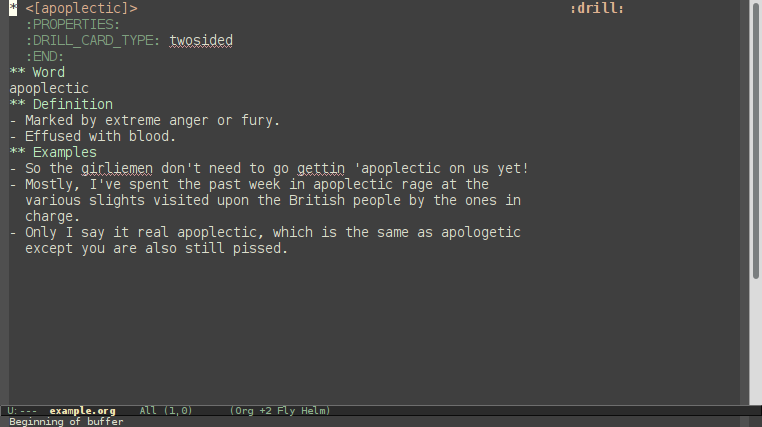
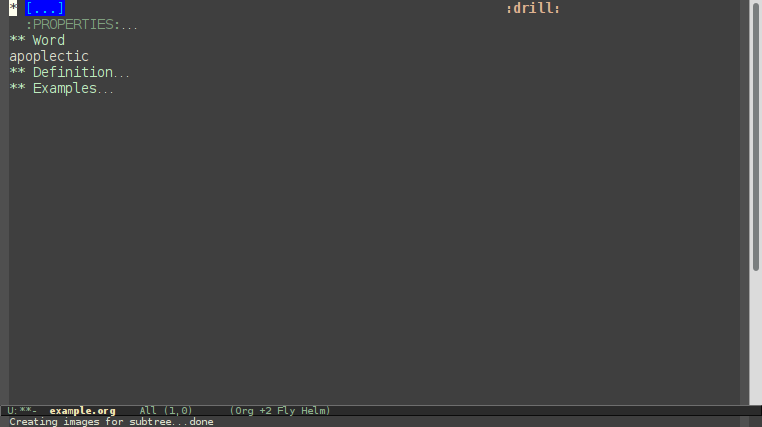
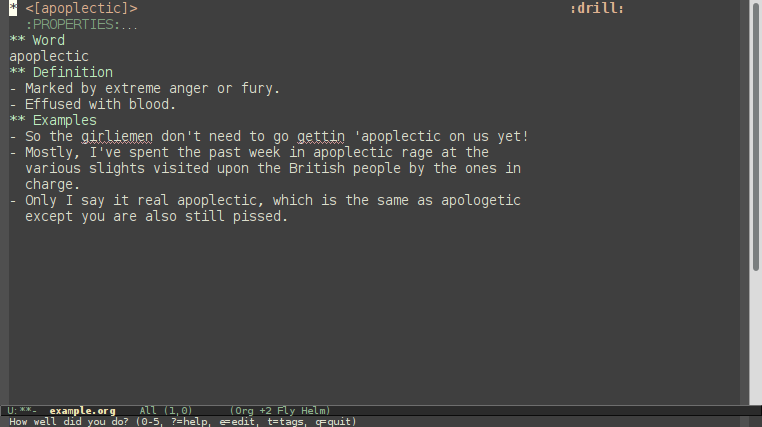
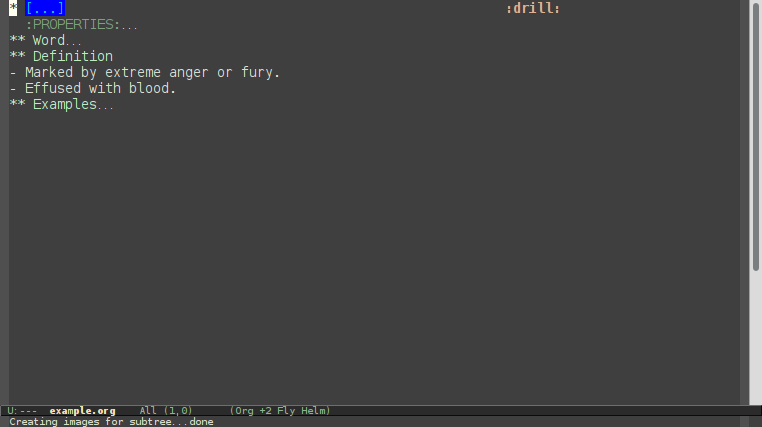
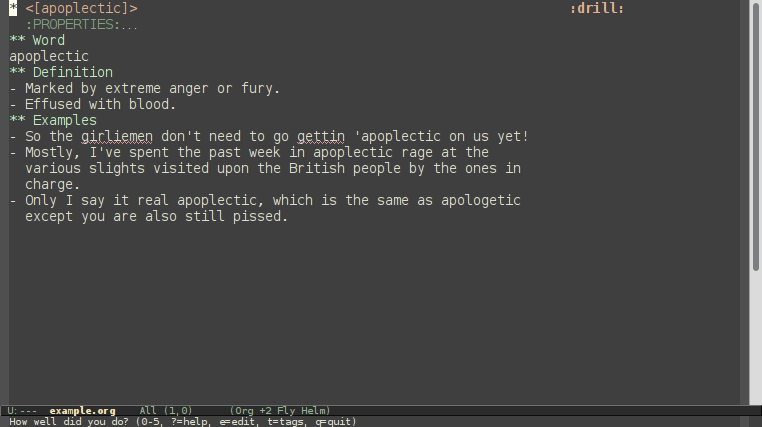
DRILL_CARD_TYPE set to "twosided"
Our goals
- Don't waste time studying cards you already know ✓
- Don't waste time making new cards
org-capturetemplates + Elisp
org-capture
- Jonathan Magen already gave a great talk on
org-capture - Org capture templates allow for quick ways to add information
- Modify the variable
org-capture-templates
org-capture-templates
Anatomy of an org-capture template
'(keys description type target template)- You tell it the key to bind to
- You tell where you want your captured information stored
- You prompt for "fill-in-the-blank" strings with
%^{prompt} - Importantly, org-capture templates can contain a
%(sexp)org-modewants you to hack it
My Chinese character capture template
"josh-chinese.el"
cedict_ts.u8
cedict_ts.u8 is ~8MB and contains Chinese to English translations
Chinese capture template in action
Chinese capture template in action 2
Example 2: English vocabulary
Utilities for fetching definitions/examples
Here we use a modifiedwordnik.el to fetch word definitions and examples from wordnik.
English Wordnik capture template in action
Wrapping up
org-drillprovides a great way for learning/refreshing Chinese vocabulary, English vocabulary, math, etc.- By using
org-drillwe can learn more efficiently org-captureprovides a quick mechanism for adding new flashcards- By using custom lisp, we can capture new flashcards extremely quickly